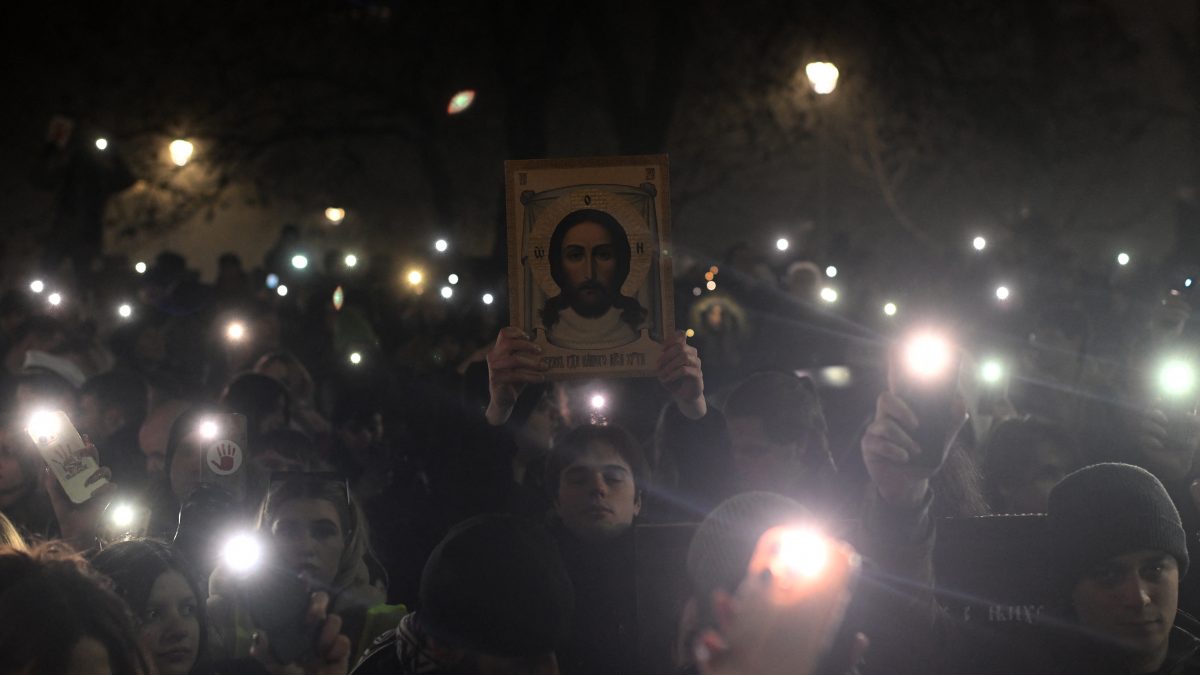Schools, theatres, bookstores, and bars in Belgrade and other parts of Serbia shut down Friday (January 24) in the latest anti-government protests sparked by a railway station roof collapse that killed 15 people in November.
Protesters allege corruption, nepotism, and substandard construction led to the tragedy in Novi Sad, where a concrete awning of the station roof caved in.
They are demanding swifter judicial action against those responsible.
Prosecutors have so far indicted 13 people, including a former infrastructure minister, but the charges have yet to be accepted by the courts.
The government denies responsibility for the disaster.
How Serbian protests are unfolding
Teachers’ unions supported a student-led strike, closing most schools in Belgrade.
Theatres have already notified that they would not show plays in the evening. Laguna publishing house kept its 45 bookstores closed, saying that “Students and teachers need our support in their fight for the just system of values in society.”
Some cafes in Belgrade stayed open but served free food and drinks or lowered prices.
Thousands of students gathered outside the main government building in Belgrade, observing 15 minutes of silence for the victims.
Exact data on the numbers participating was not immediately available.
The strike coincided with protests held every Friday, when demonstrators block roads across Serbia at 11:52 am local time – the exact time the roof collapsed in Novi Sad.
Tensions between protesters, government
Serbian President Aleksandar Vučić, who holds significant influence in the ruling Serbia Progressive Party, has scheduled a counter-rally in the town of Jagodina for later in the day.
Although his position is primarily ceremonial, protesters argue that he has violated the constitution by overstepping his executive powers. He denies these allegations.
Vucic and the government say they have already met all the students’ demands by releasing documents on the station renovation project.
Impact Shorts
More ShortsThey regularly accuse demonstrators of being backed by foreign powers.
With inputs from agencies
)